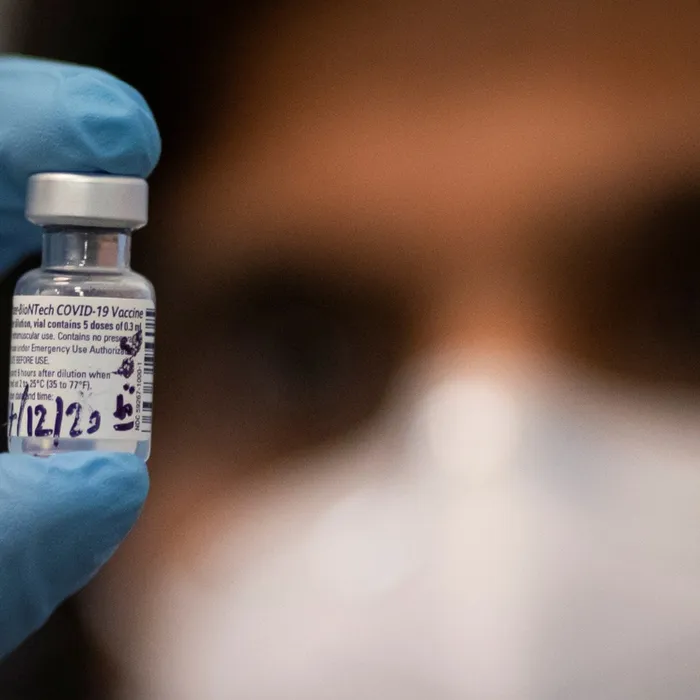Vaccines vital for Covid-19 herd immunity

The Covid-19 vaccine is on its way to South Africa
A vaccine is the most powerful global weapon we have to turn the tide against the Covid-19 pandemic; it is the “golden chalice of reaching herd immunity”, says head of the provincial Department of Health Dr Keith Cloete.
Herd immunity is when 70 to 80% of the population is immune to the virus, whether through vaccination or previous infections, thereby reducing the likelihood of infection for individuals who lack immunity.
Dr Cloete was speaking at a digicon last week held by Premier Alan Winde. Asked about the efficacy of the vaccine against future mutations, such as the South African variant called B.1.351, he said it was normal for viruses to mutate. We would have to continue wearing masks and practising physical distancing until we reached herd immunity, he added.
South Africa would acquire one million doses of Covishield - the local name for the Oxford-AstraZeneca vaccine - by the end of January, Dr Cloete said. Covishield is produced under licence by the Serum Institute of India, the world’s largest vaccine manufacturer.
Half a million more doses would be delivered by mid-February, he said.
Three vaccines are licensed to be safe for use in humans – the Oxford- AstraZeneca (Covishield); BioNTech/ Pfizer’s Comirnaty and the Moderna vaccine.
All the vaccines require two doses twelve weeks apart to offer the full benefit. The first dose helps the immune system create a response against SARS-CoV-2, the virus that causes the Covid-19 disease. The second dose further boosts the immune response to ensure long-term protection.
Mark van der Heever, spokesman for the provincial Department of Health, said the biggest misconception was that work on the vaccine started when the pandemic began.
“Vaccines are put through a number of tests and trials to confirm that they are safe. The Covid-19 vaccine was developed quicker than any other vaccine in medical history because of years of previous research on related viruses, faster ways to manufacture vaccines, enormous funding that allowed firms to run multiple trials in parallel, and regulators moving more quickly than normal,” he said.
The province’s five million people will get the vaccine in three phases. The first phase, Dr Cloete said, would include health-care workers, with an estimated target of 105 000; the second would include essential workers, people older than 60, and those older than 18 with comorbidities, with a target of two million; and the third would include people older than 18 with a target of three million people.
Covisheld is the cheapest of the three available vaccines at $4 (about R60). BioNTech/Pfizer is $20 (about R302) and Moderna is between $15 and $25 (R226 to R377), but these two are not available in Africa.
Infectious-diseases specialist and a vaccine scientist Professor Linda-Gail Bekker is the deputy director of UCT’s Desmond Tutu HIV Centre. She said more vaccines would be added to this list because many were under development. “This is good because no single manufacturer can single handedly meet the world's demands. And more available, effective vaccines will also help to regulate prices.”
Shabir Madhi, a professor of vaccinology at Wits University and director of the South Africa Medical Research Council (SAMRC), said many of the vaccines authorised for use in North America and Europe, to be produced over the next six months, were already earmarked for other countries that had made prior commitments.
As a result, South Africa would probably experience another one to two resurgences of Covid-19 before a substantial proportion of the population would have been immunised.

Mr Van der Heever said the Western Cape was ensuring that adequate numbers of suitably qualified health workers were recruited and trained to become Covid-19 vaccinators. “A training programme is being developed to equip vaccinators with the most up to date information, ensuring the safe and efficient administering of the vaccine,” he said.
“Vaccine administration locations are selected based on the availability of storage space and infrastructure and to limit the risk of Covid-19 transmission.”
Dr Cloete said common side effects would include discomfort at the injection site (usually the upper arm), and flu-like symptoms, clearing between four to five days later. “This is not Covid-19 but the body's immune system reacting to the vaccine when antibodies are forming,” he said. The best protection would come three weeks after the injection and after taking the second dose, four weeks after the first shot.
Professor Bekker said that while a vaccine could not guarantee 100% immunity, those who got it had an improved chance of not dying from Covid-19 or getting very sick.
As for children and pregnant women being given the vaccine, Professor Bekker said the vaccine safety and efficacy data so far did not include them. “So using the vaccines in these populations would be ’off label’, and so would need the appropriate counselling. Again, the conversation is around risk/benefit,” she said.
Premier Winde said the Western Cape government had not been informed when the vaccines would arrive and how many the province would get. “The province hopes to begin vaccination, however, by the first week of February,” he said.
The City's mayoral committee member for community services and health, Zahid Badroodien, said they were preparing the logistics for phase 1 of the vaccine roll-out. “The first shipment of vaccines is expected within the next few weeks, and we may call on some of our other departments to aid in this,” said Dr Badroodien.
MEC for Health Nomafrench Mbombo said at the digicon that no one would be forced to take the vaccine.